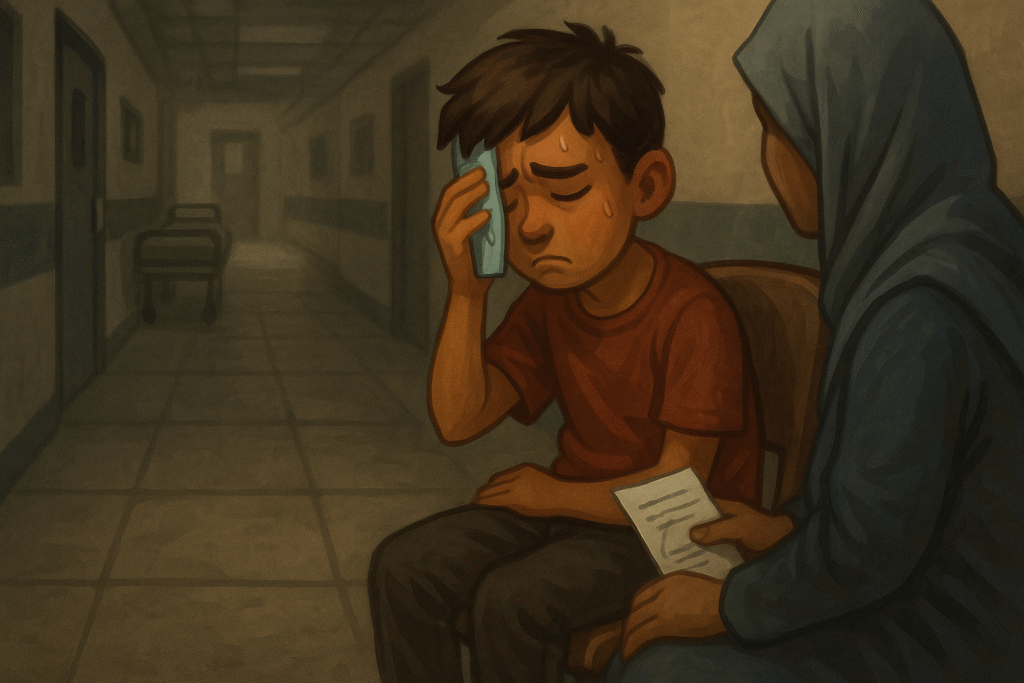Waiting for Medicine: The Pain That Can’t Be Silenced in Gaza
When a simple headache becomes a tragedy… because the white strip is missing.
In a narrow corridor of Al-Shifa Hospital in Gaza, a 13-year-old boy sits quietly on a plastic chair, pressing a cloth against his sweating forehead. He doesn’t cry. He just releases a faint groan that pierces his mother’s heart. She holds a prescription for something ordinary — a painkiller.
“The doctor said: come back tomorrow, maybe the shipment will arrive. But I know that in Gaza, tomorrow is never guaranteed.”
For most of the world, cold medicine or headache relief is routine. But in Gaza, the absence of these basics can mean prolonged pain, worsening illness — even death. Medical reports show that over 45% of essential medications are out of stock in public hospitals. That includes antibiotics, cardiac drugs, and insulin.
Doctors face a daily ethical dilemma: do they tell the patient the truth — that the drug simply isn’t available — or do they offer a weaker substitute in silence? Families often travel for hours in search of a single box of pills. Some even sell their last possessions to buy life-saving medication.
“I know a diabetic child who hasn’t had his insulin shot for two days. His mother told me: we either buy food or buy insulin.”
The tragedy deepens with every power outage, as vital refrigerated medications spoil and hospitals lose their ability to function. There aren’t enough beds. Not enough machines. Not enough hope. Only long waiting lists — and eyes waiting for a miracle.
This isn’t just a medicine shortage. It’s a violation of the human right to treatment, to healing, to life itself.
- 🔹 Urgent shipments of essential medicine
- 🔹 Lifting the medical blockade and ensuring free access to supplies
- 🔹 Supporting local community pharmacies
Pain does not wait. And every human has the right to relief — even from a headache.

